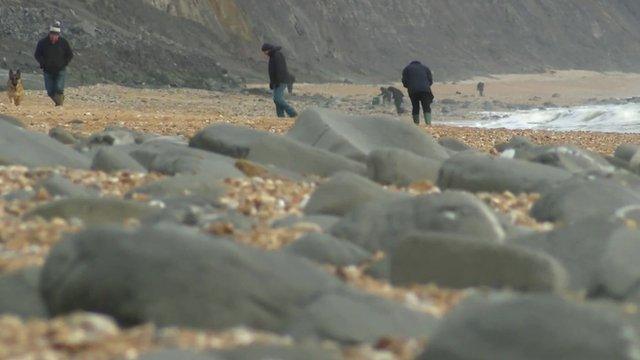Fossilised crocodile tooth 'largest of its kind in UK'
- Published
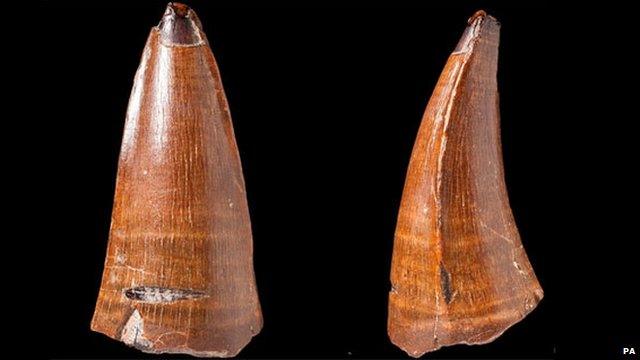
The fossilised tooth of the Dakosaurus maximus was discovered off Chesil Beach in Dorset and is now housed at the Natural History Museum in London
The fossilised tooth of a prehistoric crocodile has been recorded as the largest of its kind found in the UK.
The 2in (5.5cm) tooth was dredged from the seabed near Chesil Beach, Dorset.
It belonged to an ancient relative of modern crocodiles, known as Dakosaurus maximus.
Researchers from the the University of Edinburgh and curators from the Natural History Museum identified it after it was bought at an online auction by a fossil collector about a year ago.
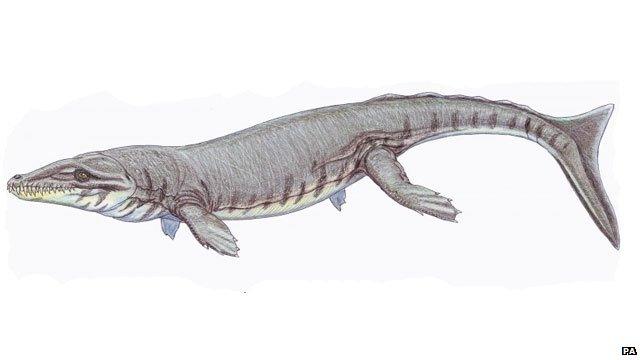
The shape of its skull and teeth suggests it ate similar prey to killer whales
The tooth, which has a broken tip, is now in the fossil collection of the London-based museum.
'Exceptionally dangerous'
Dakosaurus maximus grew to about 4.5m (15ft) in length and swam in the shallow seas of Europe 152 million years ago, according to the team's research published in the scientific journal Historical Biology, external.
The shape of its skull and teeth suggest it ate similar prey to killer whales, using its broad, short jaws to swallow fish whole and to bite chunks from larger prey.
Dr Mark Young, from the university's school of biological sciences, said: "Given its size, Dakosaurus had very large teeth.
"However, it wasn't the top marine predator of its time, and would have swum alongside other larger marine reptiles, making the shallow seas of the Late Jurassic period exceptionally dangerous."
- Published28 May 2014
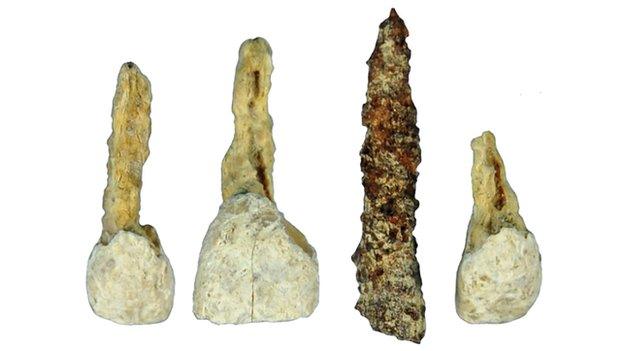
- Published4 February 2014
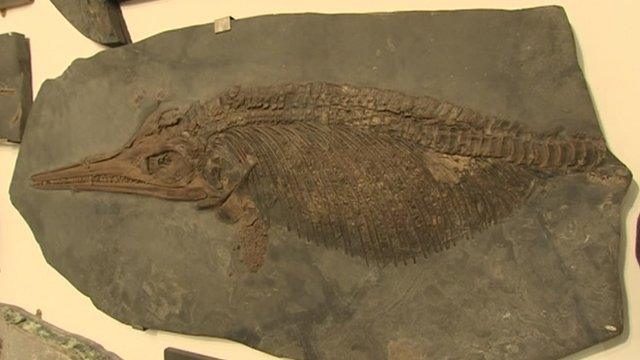
- Published4 February 2014

- Published24 January 2014
